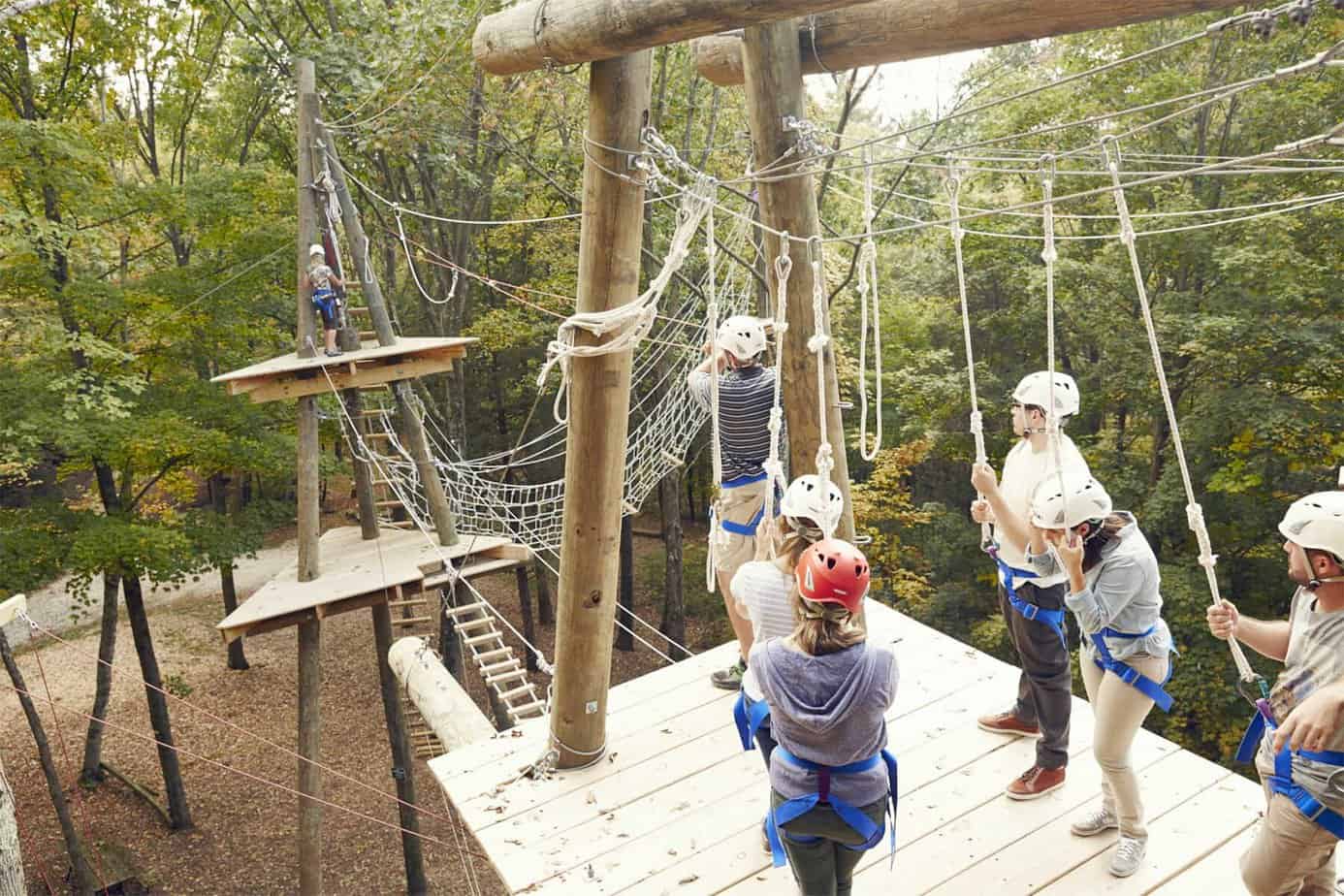Recovering from addiction is a journey that requires not only physical healing but also mental and emotional well-being. One crucial aspect of this healing process is setting boundaries and avoiding toxic relationships in recovery. Unhealthy relationships can hinder your progress, trigger relapse, and impede your overall mental wellness. Read on to learn more about the importance of healthy family relationships in recovery, how to recognize warning signs of toxicity, strategies for setting appropriate boundaries, and the importance of establishing an effective support system.
Understanding the Significance of Healthy Relationships in Recovery
Building healthy relationships is vital for maintaining mental wellness and sustaining a successful recovery. Positive relationships provide a sense of safety and security, ensuring that you feel supported and can focus on your recovery journey. These relationships involve setting boundaries, establishing trust and understanding, and avoiding codependency. It’s important to remember that relationships are not entirely about your partner’s feelings—it’s also about making sure you respect your feelings and needs.
When recovering from addiction, changing your social circle may become necessary to begin and maintain sobriety. Surrounding yourself with a group of reliable sober friends and service providers who understand your struggles can be immensely helpful. These supportive relationships in your recovery should provide acknowledgment, care, and empathy, empowering you to take the necessary steps toward rehabilitation.
Having resources and a recovery network available can also prevent relapse by providing strength and inspiration by having someone to turn to when you’re going through a difficult period. This could come in the form of a personal therapist, psychologist, support group, 12-step group, sponsor, or even your best friend.
However, perhaps you have toxic relationships with family members. Perhaps they’ve done something unforgivable, and you’re struggling with that. Or, it’s very common for parents, spouses, siblings, or other family members to still be in active addiction, which can trigger you and lead you back to a drink or drug quickly. Unfortunately, when it comes to your recovery, it has to come first, even if it means temporarily or permanently avoiding family members who are harmful to your sobriety. Repairing family relationships in recovery may take some time, or you may have to find closure with the help of a trained professional.
Recognizing Warning Signs of Toxic Relationships in Recovery
While building positive relationships is crucial, it’s equally important to recognize warning signs of toxicity. Toxic relationships can be detrimental to your mental health and recovery journey. Some red flags include
- Constant criticism
- Attempts to control or manipulate you
- Consistently feeling unhappy or disrespected in the presence of the other person
- Feeling drained
- Emotionally spent
- Often uncomfortable
If you happen to see these warning signs in any relationship in recovery, then it may be a toxic one.
Setting Appropriate Boundaries for Family Relationships in Recovery
Setting boundaries is essential for protecting your mental well-being and maintaining healthy relationships in recovery. Boundaries are the limits and regulations you set to ensure your safety and well-being in interpersonal interactions. Establishing and enforcing boundaries allows you to express your needs calmly and explicitly. Remember, you don’t need to provide explanations, defenses, or apologies for the boundaries you set for yourself. Here are some strategies for setting appropriate boundaries:
- Identify your boundaries. Reflect on your values, needs, and personal limits. Determine what you are comfortable with and what crosses the line for you in relationships. This self-awareness will help you establish clear boundaries.
- Communicate your boundaries. Once you’ve identified your boundaries, it’s crucial to communicate them effectively to others. Clearly and assertively express your limits, ensuring that others understand and respect them.
- Maintain consistency. Consistency is key when it comes to setting boundaries. Stick to your boundaries and be firm in maintaining them. This consistency will help others understand that your boundaries are non-negotiable.
- Seek support. If you’re struggling to set boundaries or navigate a toxic relationship, seek support from a mental health professional or a support group. They can provide guidance and assistance in establishing and maintaining healthy boundaries.
Identifying and Distancing Yourself from Toxic People
Toxic people can appear anywhere in your life, even within your family circle. They may exhibit passive-aggressive, manipulative, or abusive behavior. It’s important to identify any unhealthy relationships in your life that are causing distress. The more you work on yourself and distance yourself from engaging in harmful behaviors or attitudes, the more you may realize how toxicity from others is affecting you. By recognizing your own behaviors and assessing whether you engage in harm, you can begin to distance yourself from toxic individuals. This process will allow you to build healthier relationships and support your mental wellness and addiction recovery.
Establishing an Effective Recovery Network
A robust recovery network is crucial for maintaining mental wellness and sustaining recovery. Surrounding yourself with supportive friends, family, and mental health professionals provides emotional support, guidance, and motivation. These individuals can help you set boundaries, avoid toxic relationships, and stay focused on your recovery goals. Here are some steps to establish an effective support system:
Identify Supportive Individuals
Choose a few close family members or friends who can serve as your sounding board and accountability partners. These individuals should be your backbone through your recovery journey. If you’re surrounded by people you don’t trust in your family, or your friends and family are still in active addiction, groups such as Alcoholics Anonymous or Al-Anon can help. AA’s 12 steps are for your recovery, but Al-Anon is also for your recovery too. It can help you better understand someone else’s addiction, and it is a great place to share your feelings and seek help. For those who are seeking help with drug addiction, there is Narcotics Anonymous and its sister group, Nar-Anon.
Seek Professional Help
If you don’t have a strong, sober network in your personal life, consider reaching out to a mental health professional, recovery coach, or sponsor through an addiction recovery program. These professionals can offer guidance, advice, and encouragement as you navigate your recovery.
Engage in Recovery-oriented Activities
Participate in events and programs specifically tailored to individuals in recovery. Attend support group meetings, group counseling sessions, or community-based programs that provide a supportive environment. Connecting with others who understand your experiences can be invaluable for your recovery journey. Recovery-oriented activities may also overlap with prioritizing self-care – sometimes getting a little exercise (“move a muscle, change a thought”) can help you navigate difficult situations.
Prioritize Self-care
As you build new relationships and systems, remember to prioritize self-care. Engage in activities that recharge your batteries, such as meditation, spending time in nature, reading, or pursuing hobbies. Taking care of yourself is essential for maintaining mental wellness.
Setting boundaries and avoiding toxic relationships are crucial for maintaining mental wellness and sustaining successful addiction recovery. Understanding the significance of healthy relationships, recognizing warning signs of toxicity, setting appropriate boundaries, and establishing an effective support system are all essential steps in this process. By prioritizing your mental well-being and surrounding yourself with positive influences, you can create a healthy and meaningful life in recovery.
Remember, recovery is a journey, and seeking professional help and support is always encouraged. Rebuilding family relationships in recovery can be difficult enough, but you may be struggling with toxic family relationships or need assistance in your recovery. If so, reach out to a mental health professional or an addiction recovery center for guidance and support. You deserve to live a life free from toxicity and filled with positive relationships that support your growth and well-being.
If you or a loved one is struggling with addiction, Mountainside can help.
Click here or call (888) 833-4676 to speak with one of our addiction treatment experts.

 By
By 







